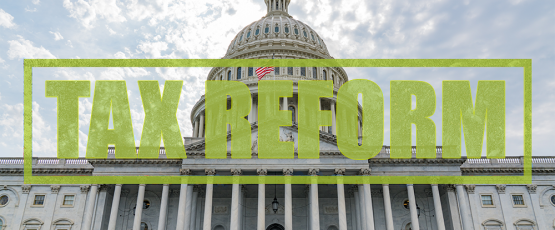
Written by Jennifer Webb, Big “I” federal government affairs counsel, originally published by IA Magazine
Yesterday, the Internal Revenue Service issued a draft regulation on a key provision of the 2017 tax law (26 U.S.C. §199A) that allows for a 20 percent deduction on “qualified business income” for owners and shareholders of pass-through businesses.
Under the draft regulation, owners and shareholders of insurance agencies and brokerages can take the 20 percent tax deduction on qualified business income, no matter their taxable income levels, because the IRS does not consider insurance agents and brokers to be a “specified service trade or business.”
Owners and shareholders of specified service trades and businesses cannot take advantage of the deduction if their taxable income is over a certain level.
What does that mean?
The relevant part of the draft regulation reads as follows:
“Proposed §1.199A-5(b)(2)(x) uses the ordinary meaning of “brokerage services” and provides that the field of brokerage services includes services in which a person arranges transactions between a buyer and a seller with respect to securities (as defined in section 475(c)(2)) for a commission or fee. This includes services provided by stock brokers and other similar professionals, but does not include services provided by real estate agents and brokers, or insurance agents and brokers.”
Section 199A provides the 20 percent tax deduction to an owner or shareholder of a pass-through entity where the owner or shareholder’s annual taxable income does not exceed $315,000 for joint filers and $157,500 for single filers in 2018.
In other words, all owners or shareholders that are organized as pass-throughs under the above income thresholds can utilize the full 20 percent deduction, and any regulations or guidance released by the Treasury Department, including the draft released yesterday, will not impact this.
However, an owner or shareholder of a specified service trade or business with an annual taxable income between $315,000 and $415,000 (joint) and $157,500 and $207,500 (single) will see the deduction phased out.
Those with an annual taxable income above $415,000 (joint) and $207,500 (single) will be prohibited from utilizing the new deduction.
Why was this an issue for insurance agents?
While the regulation is only in draft form, it was previously unclear whether insurance agencies and brokerages would be considered specified service trades or businesses.
Because insurance agencies and brokerages are not a specified service trade or business, it means that those with annual taxable income above the $315,000 (joint) and $157,500 (single) thresholds can take advantage of the deduction.
But, the total amount of the deduction for those at these upper income levels cannot exceed 50 percent of employee W-2 wages, or 25 percent of W-2 wages plus 2.5 percent of capital assets (e.g. tangible property purchased for the business), whichever is greater. Alongside the draft rule the IRS released a proposed procedure for calculating W-2 wages.
The Big “I” has been aggressively advocating before Congress and the Treasury Department that insurance agencies and brokerages should not be considered a specified service trade or business.
In April, the Big “I” sent a letter to key Treasury Department officials and had a meeting with the department. As a follow-up to the meeting, the Big “I” sent another letter to the Treasury Department, specifically addressing questions about the term “brokerage.” The Big “I” has also had a number of meetings with key congressional offices on this issue.
Beyond the “specified service trade or business” definition, the draft regulation covers several issues related to the Section 199A deduction which may impact agents and brokers depending on individual circumstances.
For example, financial advice and retirement planning services would qualify as specified service trades or businesses, and consulting is considered a specified service trade or business to the extent that a fee is charged for such services. However, “consulting that is embedded in, or ancillary to, the sale of goods, if there is no separate payment for consulting services” is not considered a specified service trade or business.
Also of note, a trade or business is not a specified service trade or business if it has “gross receipts of $25 million or less (in a taxable year) and less than 10 percent of the gross receipts. . .[are] attributable to the performance of an SSTB.”
If gross receipts are above $25 million, the relevant percentage is 5 percent. This means an insurance agency that has predominantly a property-casualty book of business, but also has a small retirement planning, consulting or financials services component, would not be considered a specified service trade or business under the draft regulation.
Where things stand right now
The Big “I” is currently reviewing the draft regulation, which is open for a 45-day public comment period. A public hearing on the regulation is tentatively scheduled for Oct. 16. Because the regulation is in draft form and open for public comment, changes may occur before the rule becomes final.
The Big “I” will provide comments to the IRS and additional guidance to members over the next few months. Final regulations are expected before the end of the year.
OIA will keep members informed as we learn more.




